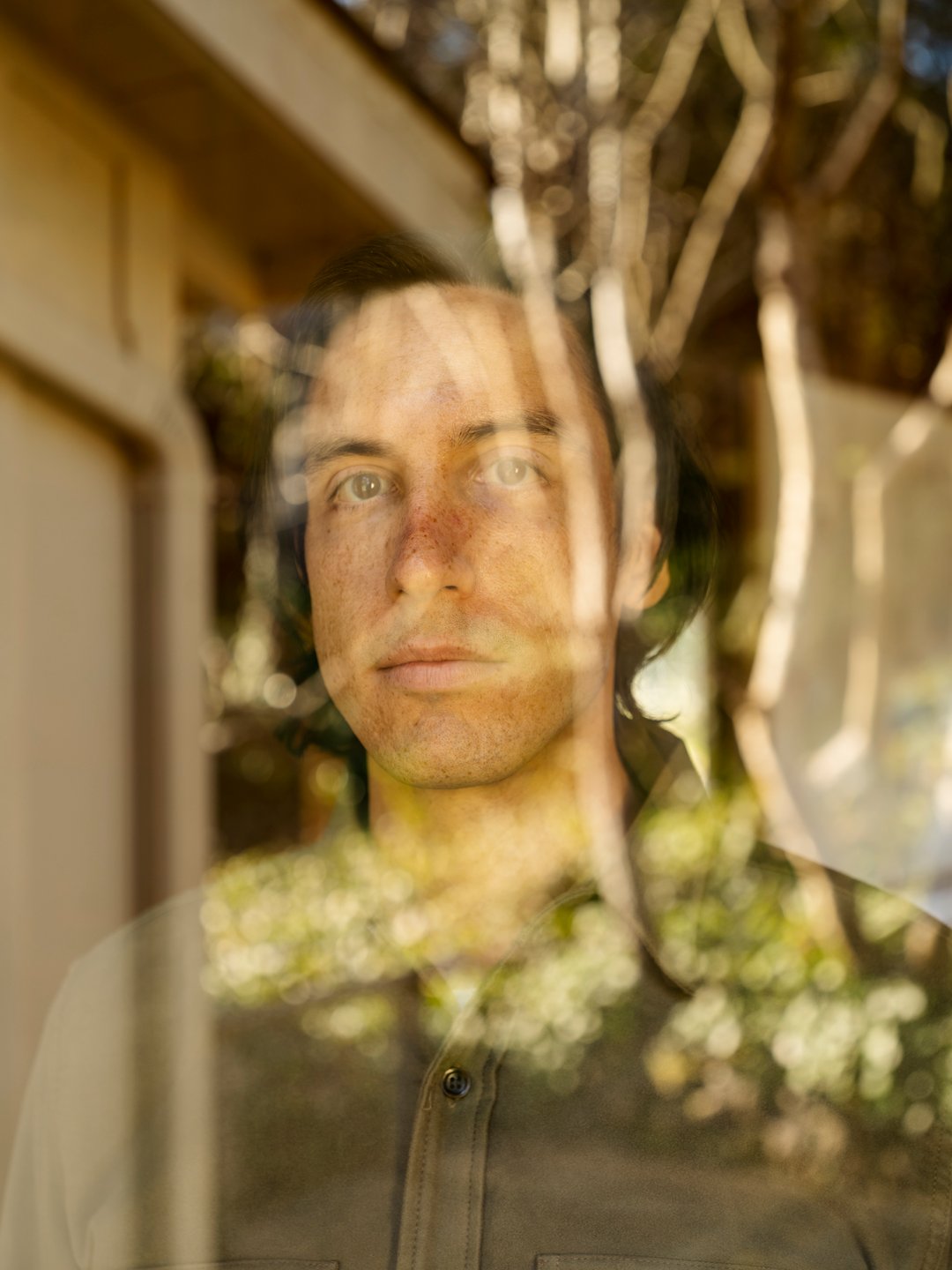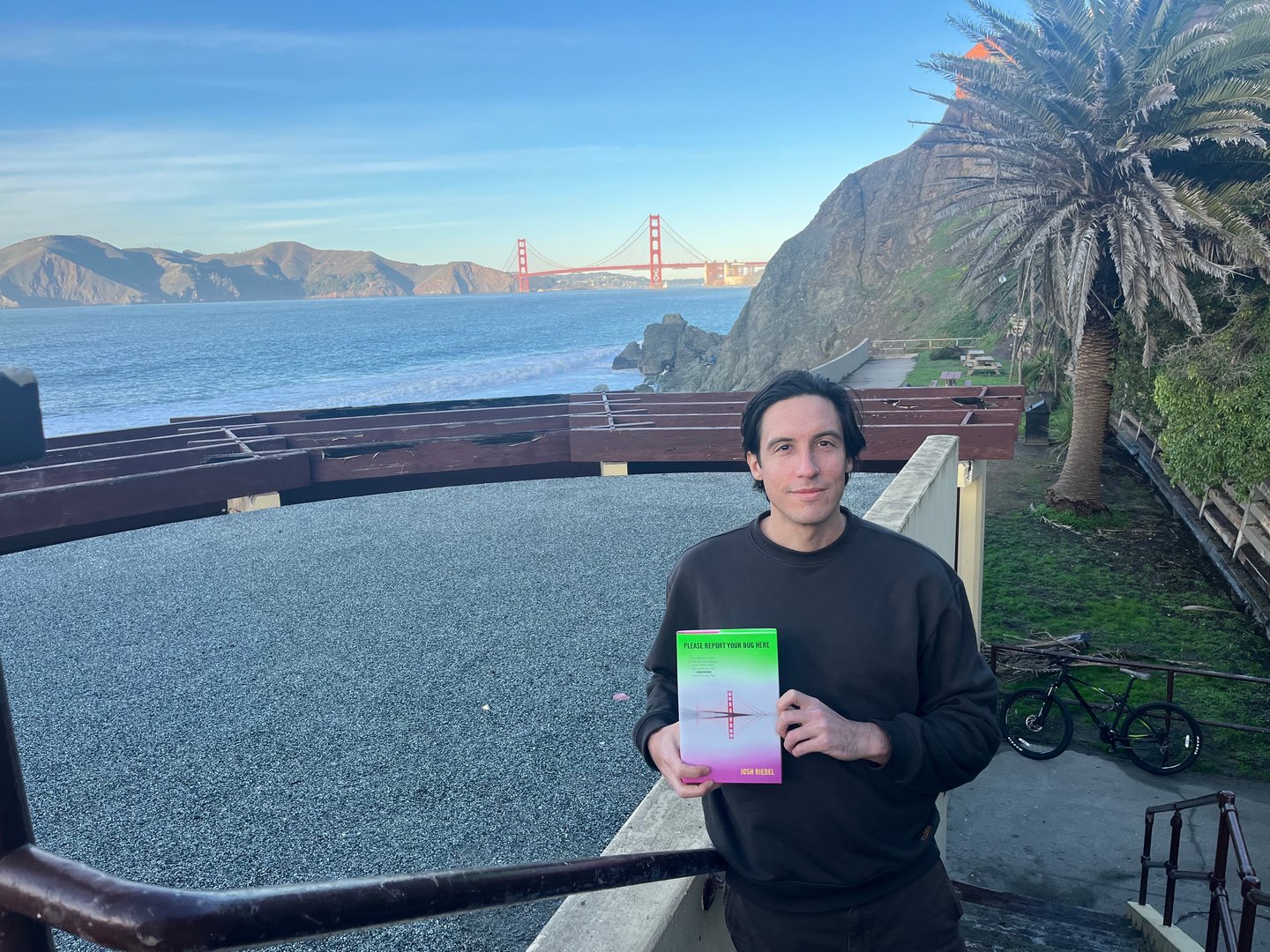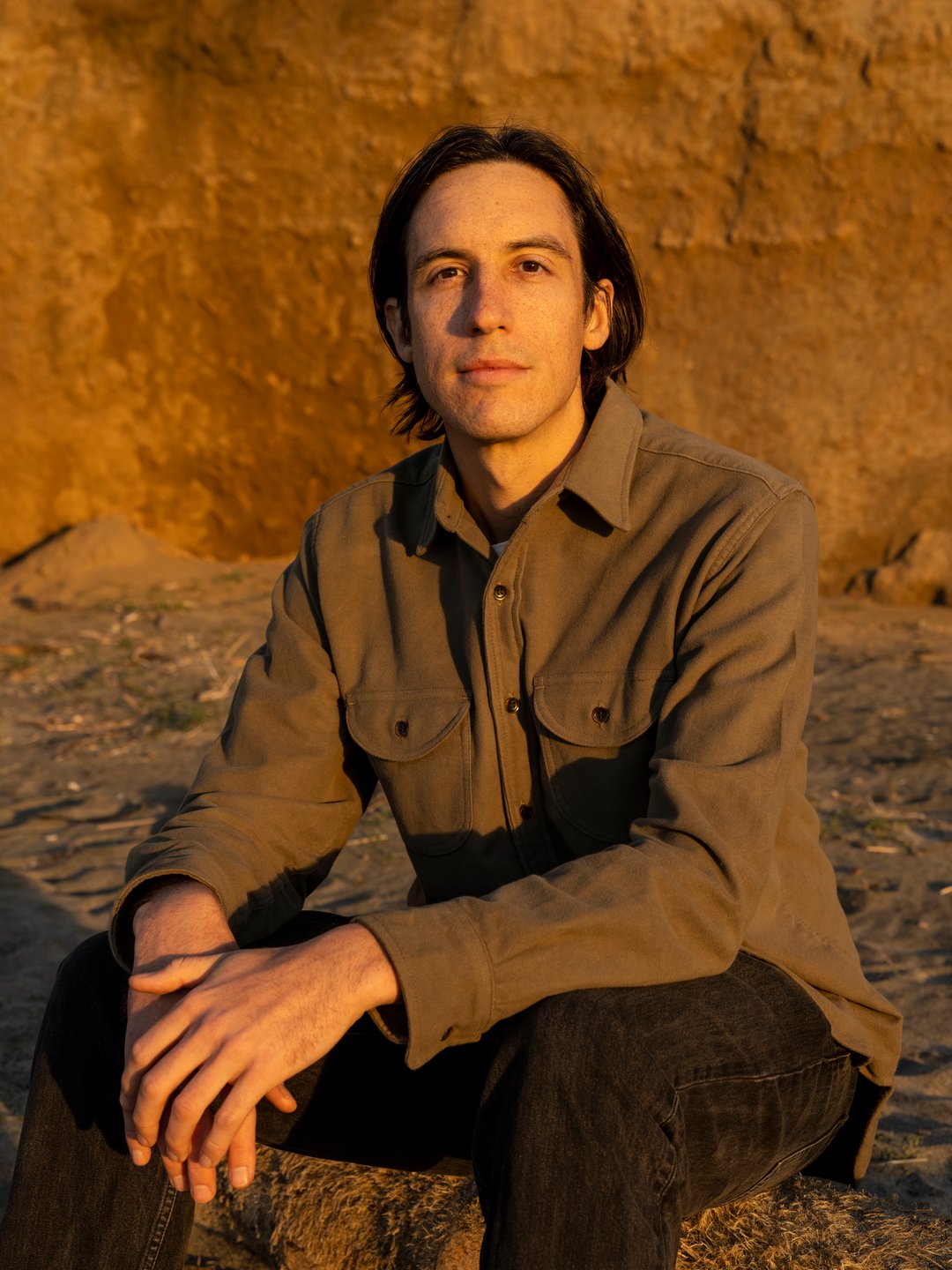Don’t Write Alone Interviews
Josh Riedel Believes Tech and Writing Connects Us Together
In this conversation, Ploi Pirapokin talks with Josh Riedel about his new novel ‘Please Report Your Bug Here,’ his time working in the tech industry, and the joys of building a literary community.
In Josh Riedel’s debut novel, Please Report Your Bug Here , which publishes today, January 17, from Henry Holt, a college grad with a six-figure debt reviews flagged photo queues in a hot new dating app and discovers a glitch that transports him to other worlds. Without giving away any spoilers, I sat down with Josh at the tree-lined Atlas Cafe chuckling at the Bay Area references from his novel—from debating whether the best pastries came from Tartine or Arizmendi to active-listening trainings at Big Sur—and the accurate depiction of Big Tech in fiction, even as a speculative element.
“Given the opportunity to dunk on tech bros and tech culture, I’m surprised love is a prominent thread in your novel,” I started.
Josh cackled. “Love is a theme. I appreciate that you pointed that out. The main character, Ethan, not only works at a dating app, but he’s also reeling from a breakup. So love—and how we connect with other people—is top of mind.”
“As someone who moved to San Francisco eleven years ago—a transplant like Ethan—I found myself falling in love with the zeitgeist of Big Tech all over again,” I confessed.
“I wanted to capture the tech optimism that was rampant in the Bay Area in 2010, when the novel is set. There was a real desire to build technology that helped people connect with each other.” He leaned over, as if sharing a secret. “Personally, I found working in tech intoxicating—it’s a thrill to see people using an app you worked on—but I devoted so much time and energy to start-up life that I lost sight of other things that were important to me, like writing.”
“Did you always want to be a writer?”
“Yes. It took me a long time to call myself a writer, but I always knew I wanted to write a book. As an adult, I mean. When I was in first grade, I wrote a book about a dragon and won some award, so that was technically my first book. I got to read it to the older kids in another school . . . ”
“What a prize!”
“I took a couple of workshops in college and wrote a novella as my senior thesis at Reed College. Since the only fiction professor was on sabbatical, an English professor, Nathalia King, volunteered to work with me. I loved working with her. Every week she asked me to come into her office and read what I’d written. One time she stopped me mid-sentence to ask if I’d intended to make an allusion to the Iliad. I did not, but still! It was cool to be read so deeply and for my own writing to be taken seriously.”
Photograph courtesy of Andrew Owen
I offered Josh a chance to wolf down his multigrain sandwich and steaming coffee while asking him about authors and works that inspired Please Report Your Bug Here . He mentioned “Nirvana,” by Adam Johnson, as an example of teaching how technology works with humor and an emotional element; Charles Yu’s How to Live Safely in a Science Fictional Universe and “Standard Loneliness Package” as ways to explore the emotional impact of new technology through character; and Ling Ma’s “G,” where the powers of the fictional drug isn’t frontloaded and you learn along with the characters. “Rachel Khong has an equally compelling drug in her story ‘The Freshening,’ in The Paris Review ,” Josh concluded, his plates clean.
I had first met Josh at the Bread Loaf Writers’ Conference in 2015. Our friendship can be summed up in several images: expansive oceans, him introducing me to many bird species on our walks to eat, and his Instagram handle as the first and only Josh—no underscores, numbers, or need for acronyms.
“I haven’t always written speculative fiction. When we met at Bread Loaf, I was working on a different project completely,” he laughed. “In my novel, the speculative elements are another way to portray emotional truth for the main character, Ethan, who’s searching for some sense of purpose and identity through his work.”
“What became easier for you to complete this novel?”
“The novel consists of a series of fairly short chapters, each with its own heading, and that structure gave me the freedom to jump around in the story during the writing process. The prologue—where Ethan admits he’s breaking his nondisclosure agreement—as the framing device was a structural decision made in the earlier stages of drafting to create a sense of urgency. My editor at Holt, Ruby Rose Lee, helped a bunch with plot and pacing after the book was sold.”
Photograph courtesy of Erin Price
“How much of your experience from Instagram did you draw on for this novel?”
“Tech was an adventure for me, and working in that industry changed my writing. All the talk in San Francisco about the future definitely pushed my writing harder into the speculative,” Josh said. “My role in tech was not as an engineer, by the way. I was a communications manager, a nontechnical employee—”
“Ah, us second-class citizens daring to live with the gods here!”
“When I graduated from college in 2007, it wasn’t as common, at least in my circles, to go straight to an MFA program, even though I knew I wanted to attend grad school eventually. But there was a real emphasis on ‘real-world experience.’ I had a lot of student loan debt, so I needed to work. I actually got a job as a customer-support rep at Facebook right after college, but the work environment wasn’t for me. I left after a few months and, after that, had a string of jobs: I worked as a barista at Ritual Coffee, and then at Stumptown, did contract work at a coding company. My best job, actually, was at a button factory.”
“Buttons?”
“Yeah, like the ones with a pin that you wear on your denim jacket or whatever. The work was really easy to zone out to. I made up stories in my head all day, then went home and wrote them down.”
“But eventually you crossed over to the dark side and got an MFA, didn’t you?”
“Yes! And I’m glad I did. I loved my time at the University of Arizona. But when I applied to grad school, it had been about eight years since I’d taken a writing workshop in person. (I’d taken a couple online.) I applied to Tin House and Bread Loaf and Sewanee, and I went to Bread Loaf because that’s where I got in. I had no idea what I was doing.”
“I remember we were skulking around the forests to take photos of moose at Bread Loaf.”
“See? No idea what I was doing. It was my introduction to the literary world, and I met so many people there who remain friends today. I shared a room with Sidik (Sidik Fofana, author of Stories from the Tenants Downstairs ), who shared a little about his MFA experience and how he was working on a manuscript and had an agent and all that. So he was an inspiration for me (and still is). Back at Reed in my undergrad, Pete Rock was a big influence, and my only connection to a working writer. I loved Tucson—it’s an amazing literary town that’s affordable for artists—and the UA professors—Aurelie Sheehan, Manuel Muñoz, Ander Monson, Alison Deming, and so many others—showed a lot of care for my work.”
Photograph courtesy of Andrew Owen
“What has been the most fulfilling part of being a writer?” I asked.
“I love being a part of a community of writers. It’s been so fulfilling to share my work with other writers—at Bread Loaf, in grad school, or when I inevitably had to ask writers I admire to blurb my book! And to read other writers’ work, too, of course. I became a fan of Matthew Baker’s work after reading ‘Why Visit America’ in The Paris Review , and of Kate Folk’s after reading ‘The Bone Ward’ in McSweeney’s .”
“Will dragons be featured in your next project?” I asked, curious if what comes next will also move into the speculative and fantastical.
“Should I be working on a new project now?” Josh’s eyes wandered. “I’m actually working on another novel and dabbling in screenwriting. But I’m also just trying to enjoy the process of releasing my debut novel into the world. Please Report Your Bug Here was its own world I could escape into for so many years, and I’m hopeful my next project feels like that too.”
“I hope you find the same solace with your next book, when the time comes,” I said. “Don’t forget your award-winning dragons.”



